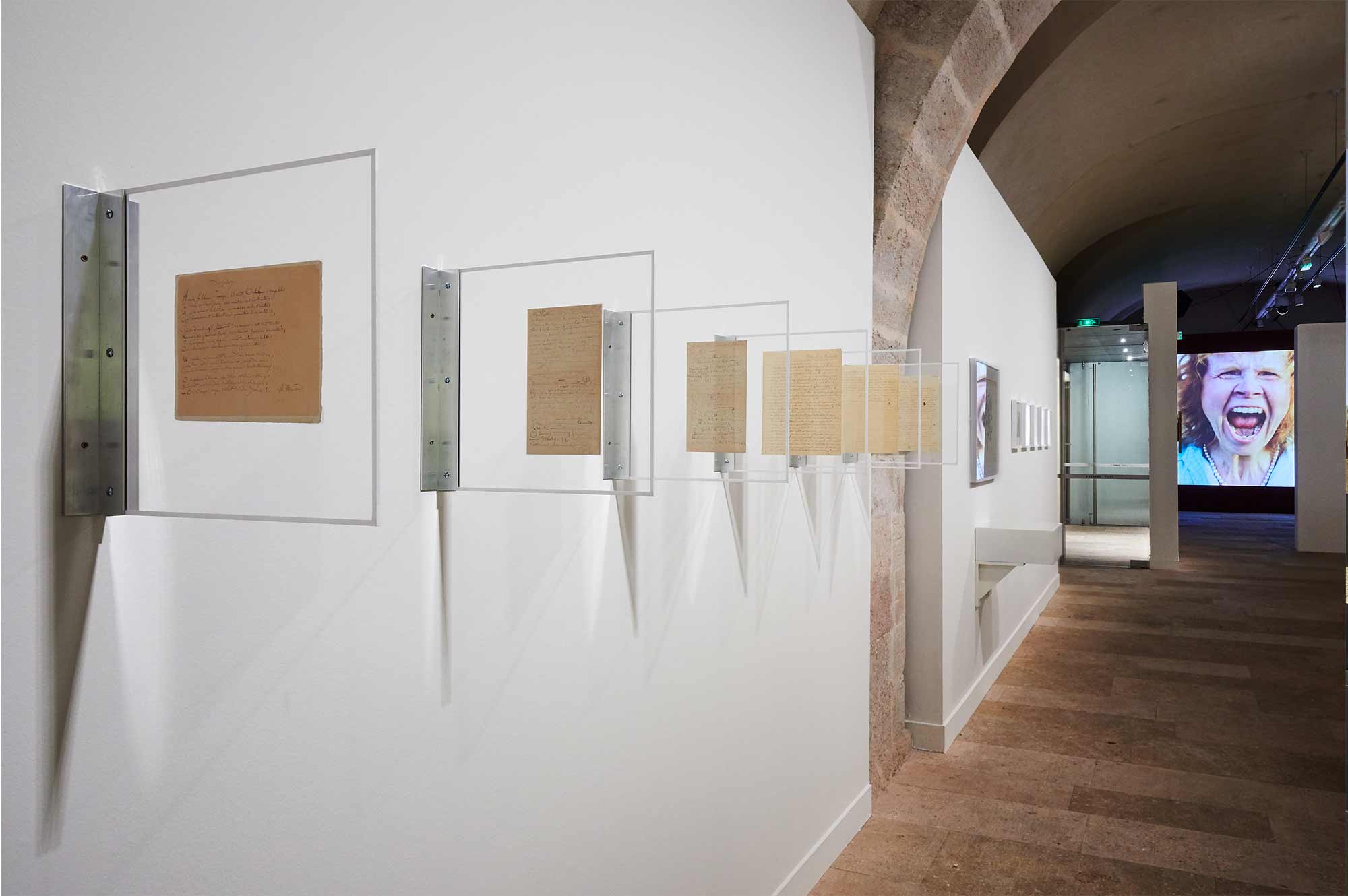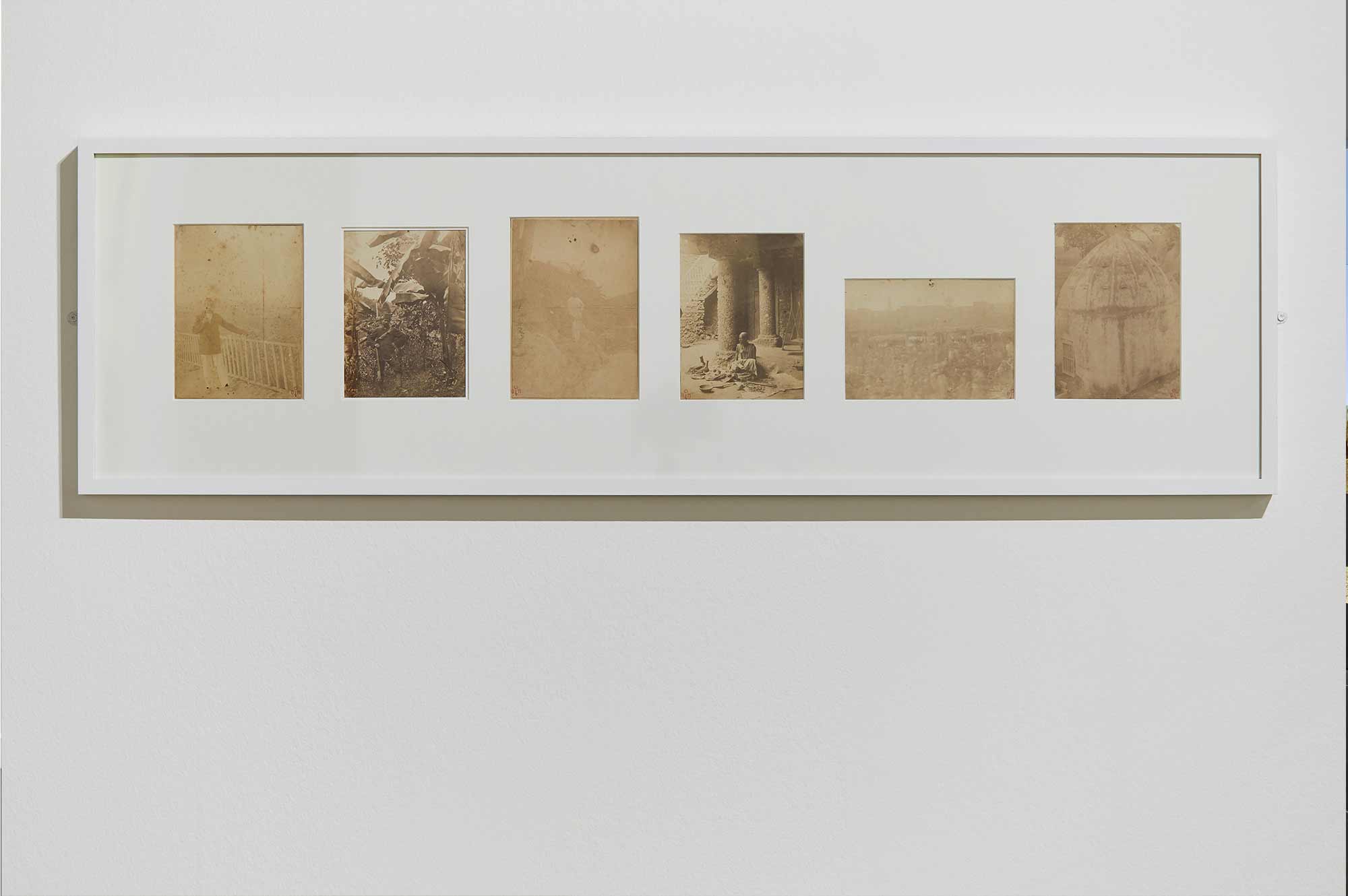Arthur Rimbaud (1854 – 1891, FR), poet
Arthur Rimbaud, Manuscrits, 1891 © Musée Arthur Rimbaud, Ville de Charleville-Méziêres
Photographes
Selfportrait on Mazeran, Viannay and Bardey’s House Terrace, Harar, 1883
Sotiro in a Banana Trees Garden,Harar, 1883
Self-Portrait in a Café’s Garden, Harar, 1883
Wherehouse Store. The Daboulas Makers at the Kât Time, Harar, 1883
View on Harar Market, Harar, 1883
The Dome of Cheikh-Ubader’s Mausoleum, Harar, 1883
© Musée Arthur Rimbaud, Ville de Charleville-Méziêres
Arthur Rimbaud’s literary output only spanned five years. One of the sections of his poem A Season in Hell, ‘Bad Blood’ is a sustained investigation into the narrator’s genealogical origins, arriving at the conclusion: ‘I am well aware that I have always been of an inferior race’. After 1874, he became a trader and explorer who, by his own account, could hardly be associated with his former interests, appearance, language or even voice. Although his prolific correspondence from that time provides an account of him as a writer, it primarily documents his personal turmoil alongside practical and commercial concerns.
Having exhausted his former medium, Rimbaud grew fascinated with the visual techniques of photography. These images testify to Rimbaud’s new existence. Bleached, faded and developed in dirty water, almost half of his seven surviving photographs shot during this 18-month experiment are self-portraits. Two show him on the terrace of his new home and in the banana garden, performing the essence of his new identity in self-imposed exile in Abyssinia (now Ethiopia). They also show his close friend and Greek assistant Constantin Sotiro, the market of Harar and the mausoleum of Cheikh-Ubader. Through these images he comes to see himself as ‘literally an Other, a colonial artefact delivered in altered form back to France.’ ‘I became a skeleton, I’m scary,’ he wrote in a letter from Aden sent on his way to Marseille on the 30th of April 1891.
Vowels
A Black, E white, I red, U green, O blue: vowels,
I shall tell, one day, of your mysterious origins:
A, black velvety jacket of brilliant flies
Which buzz around cruel smells,
Gulfs of shadow; E, whiteness of vapours and of tents,
Lances of proud glaciers, white kings, shivers of cow-parsley;
I, purples, spat blood, smile of beautiful lips
In anger or in the raptures of penitence;
U, waves, divine shudderings of viridian seas,
The peace of pastures dotted with animals, the peace of the furrows
Which alchemy prints on broad studious foreheads;
O, sublime Trumpet full of strange piercing sounds,
Silences crossed by Worlds and by Angels:
O the Omega, the violet ray of Her Eyes!
(Translated by Oliver Bernard)










